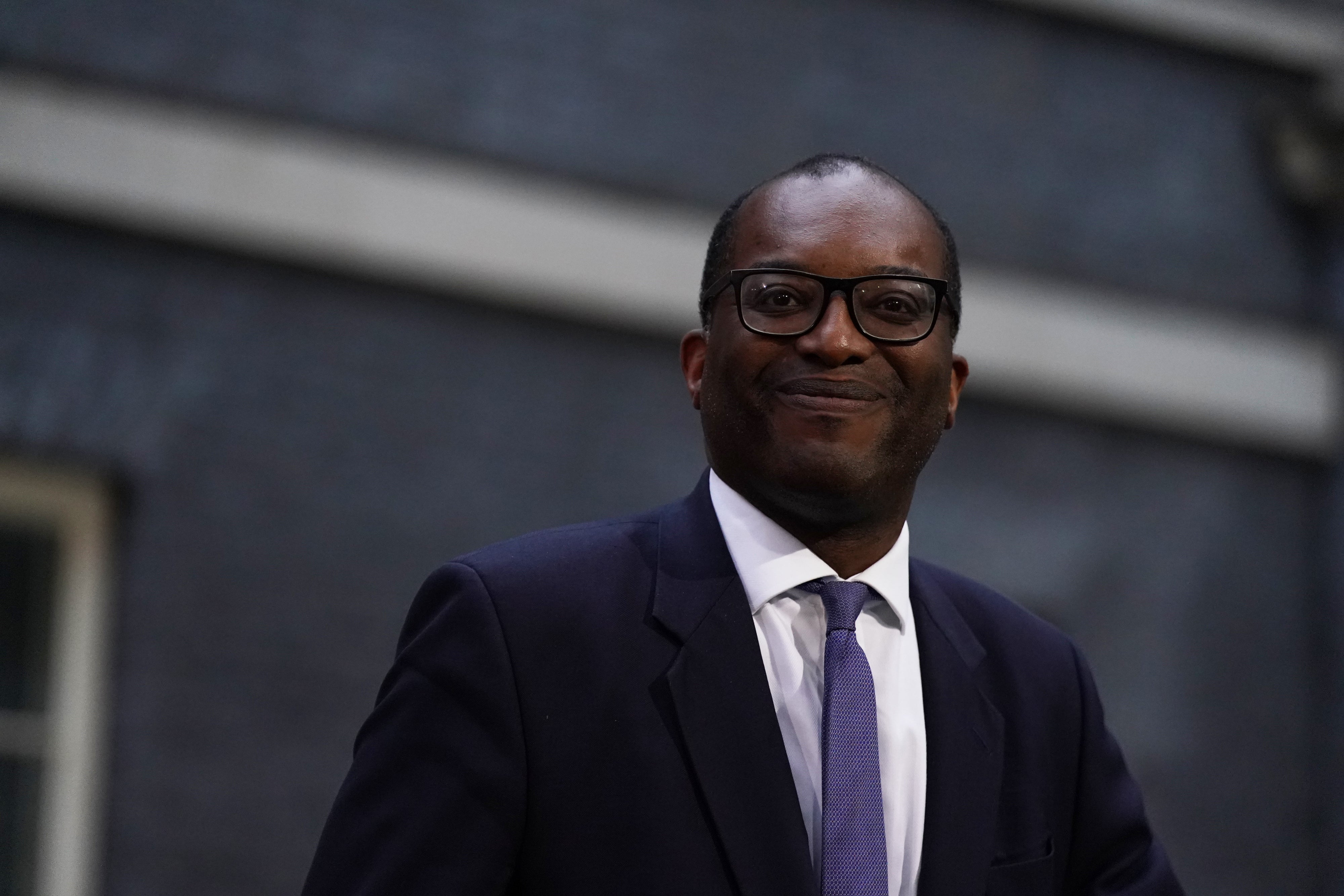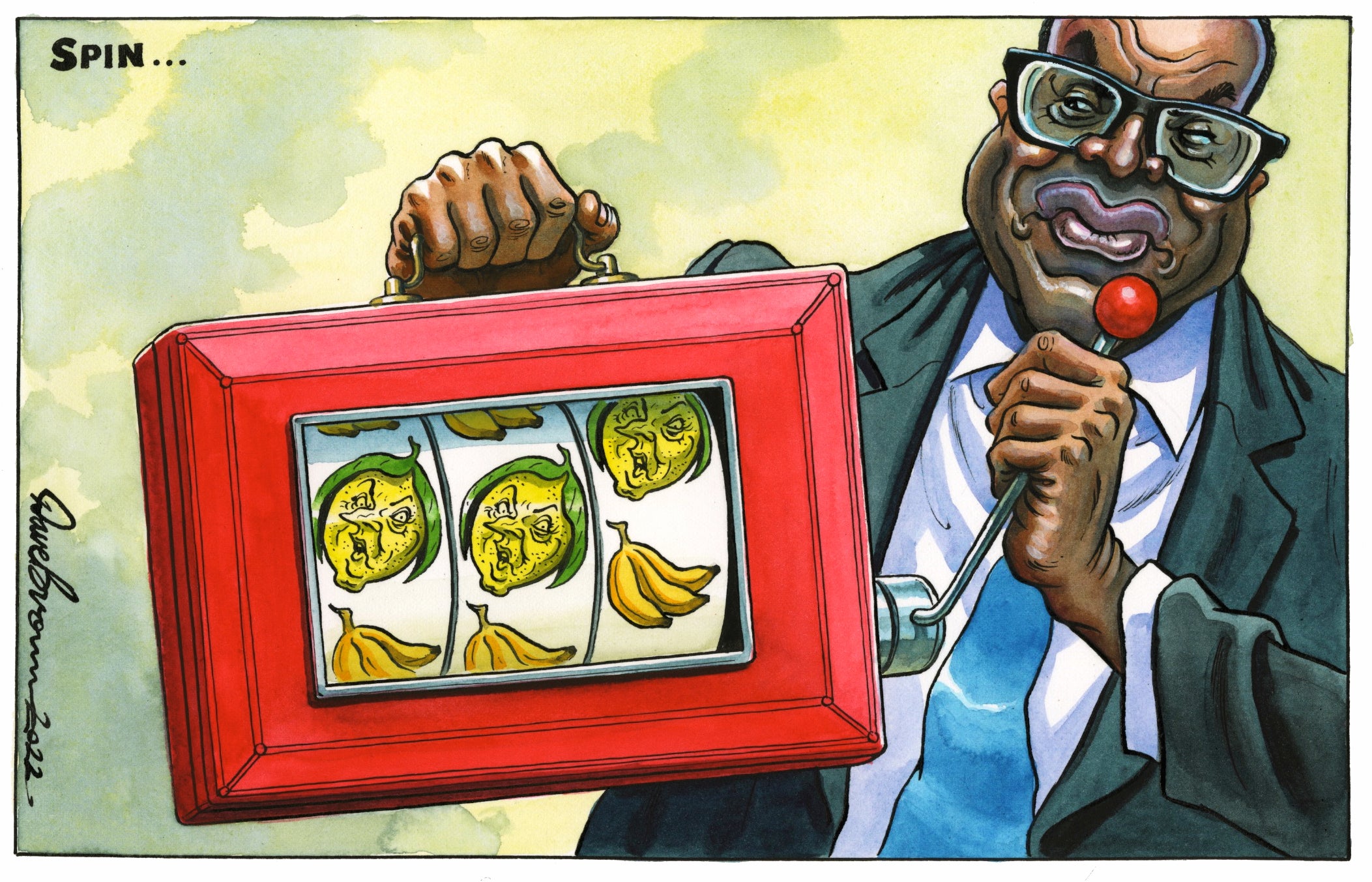Inside Politics: The big gamble
Chancellor Kwasi Kwarteng to set out government’s fiscal plans in ‘mini-budget’, writes Matt Mathers


Hello there, I’m Matt Mathers and welcome to The Independent’s Inside Politics newsletter.
Happy Friday – we made it. Firstly a word to Inside Politics readers as we surpass the 120,000 subscribers mark. Thank you to those who have been here since the start and stayed with us through thick and thin. And to those of you who have signed up recently – welcome aboard and strap in for what promises to be another extraordinary period in British politics. Now, to the small matter of the new government’s rather large ‘mini-budget’…
Inside the bubble
Commons action gets underway at 9.30am with any urgent questions (none are expected) before Kwasi Kwarteng, the chancellor, makes a statement to the house. After that Lib Dem MP Layla Moran has an adjournment debate on the proposed reopening of Campsfield House immigration removal centre.
Daily briefing
Place your bets
In just over an hour Kwarteng will lay out the new government’s fiscal plans in a statement to MPs that will not only set the future course for the UK economy but also, in all likelihood, decide the outcome of the next election. Reporting over the past few weeks means we already have a fair idea of what Kwarteng will say when he addresses the Commons at around 9.30am: a cut in stamp duty, deregulation in the City, investment zones, changes to in-work benefits and tax cuts (the axing of the NI hike has been confirmed) that were much-trailed during Liz Truss’s successful campaign for the Tory leadership.
So we know what most of the policies are. But will they work, what impact might they have on society and what could they mean for the Labour Party’s electoral prospects when voters next go to the polls, as expected, in 2024? All of these questions are intimately linked and you only have to look at the range of views from the columnists writing in our Trussonomics: Can it work? mini-series (below) to see that the answers are extremely complex and dependent upon a myriad of factors.
Take Truss and Kwarteng’s promised tax cuts, for example. They may provide the economy with a short, sugar rush hit of growth, but become unsustainable over the longer-term because of a surge in government debt. Will the extra money in people’s pockets simply get eaten up by things like steeper mortgage costs amid high inflation and rising interest rates (the BoE thinks we’re already in a recession), constraining spending? Lifting the cap on bankers’ bonuses, meanwhile, may well make the City more attractive to global talent. But the timing of the move is questionable at best and could act as the final straw for workers in other sectors considering walkouts over pay. And who is to say firms won’t simply pocket the savings from corporation tax by paying out more to shareholders, rather than investing in the business or their staff?
Undeterred, and driven by her ideological convictions, Truss has decided to go for broke by nailing her colours to the mast with a target of 2.5 per cent of annual growth, which she says will bring in more tax revenue. At this point, that target feels – and looks – like a noose the Labour Party will be able to throw around the PM’s neck further down the line. In sticking to her guns, however, Truss has at least been able to differentiate herself from her predecessors Boris Johnson, Theresa May – whose premiership was consumed almost exclusively by Brexit – and David Cameron. Levelling up and the Big Society have been abandoned in favour of GDP.
She has also neutralised one of the opposition’s main attack lines. Keir Starmer and Rachel Reeves, the shadow chancellor and other frontbenchers, it appears, can no longer accuse the Conservatives of being the party of high taxes. But with an as yet uncosted energy bailout package and huge levels of additional borrowing to fund this and fund said tax cuts, they will now likely refocus their efforts on going after the governing party on being fiscally irresponsible. That is not an opinion but the view of most economists, including those at the respected Institute for Fiscal Studies think tank, who described Truss’s economic agenda as a “gamble at best”. The danger for Labour, comfortably ahead in the polls as things stand, is that she comes up trumps. If so then all bets are off in 2024.

HoL reform
As you might expect, the mini-budget splashes most papers and news websites this morning and will no doubt continue to do so through the weekend and into next week. But there are some other stories around, the most eye-catching of which is a great scoop by The Guardian revealing that Labour could get rid of the House of Lords if it wins the election in 2024.
The party would replace the unelected chamber with an assembly of regions and nations, according to a suggestion made in a draft of a constitutional review led by former leader and prime minister, Gordon Brown.
The draft also suggested handing new economic powers, including over tax, to local regions and devolved nations. Other measures under consideration included allowing local democratically elected bodies to promote bills in parliament, giving citizens a constitutional guarantee of social and economic rights, and handing mayors power over local education, transport and research funding.
---
Yesterday’s email noted how Jacob Rees-Mogg’s apparent new found appreciation of the collective was perhaps a sign of the strange, uncertain and confusing times we live in.
And the new business secretary might be feeling slightly dazed this morning after taking a beating at the dispatch box by Ed Miliband as he attempted – rather unsuccessfully – to defend the government’s bizarre decision to press ahead with fracking.
Rees-Mogg also took a few punches from his own side as discontent on the Tory backbenches – and across the Commons – over a move which seems to have no benefits.
Today’s cartoon
See all of The Independent’s daily cartoons here

On the record
Kwarteng confirms the 1.25 per cent rise in national insurance contributions will be reversed from 6 November.
“Cutting tax is crucial to this [growing the economy] – and whether businesses reinvest freed-up cash into new machinery, lower prices on shop floors or increased staff wages, the reversal of the levy will help them grow, while also allowing the British public to keep more of what they earn.”
From the Twitterati
Jim Pickard, FT chief politics correspondent, pokes fun at ‘budget day’.
“One day a chancellor of the exchequer will use Budget Day to declare ‘I won’t change any taxes because my predecessors, from the same political party, knew what they were doing.’”
Essential reading
- Hamish McRae, The Independent: The path to growth under Truss is far from certain
- Emily Carver, The Independent: PM’s strategy is bold – but it can work
- Grace Blakeley, The Independent: Truss falls back on Thatcherism that excites her base – but alienates most voters
- Sean O’Grady, The Independent: Truss risks killing the economy
Inside Politics first appeared in our daily morning email. You can sign up via this link.
Join our commenting forum
Join thought-provoking conversations, follow other Independent readers and see their replies
Comments
Bookmark popover
Removed from bookmarks